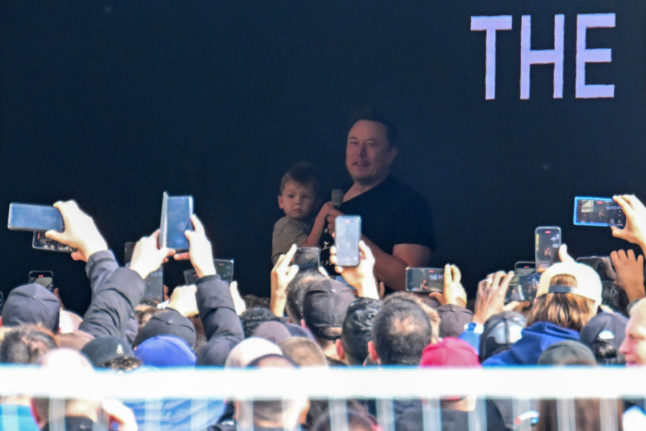The Tesla CEO addressed thousands of employees on arrival at the site, accusing “eco-terrorists” of the sabotage as he defended his company’s green credentials.
With his son X AE A-XII in his arms, Musk said: “I am here to support you.”
The billionaire’s visit came a week after power lines supplying the electric carmaker’s only European plant were set on fire in an act of sabotage claimed by a far-left group called the Vulkangruppe (Volcano Group).
READ ALSO: Far-left group claims ‘sabotage’ on Tesla’s German factory
Musk had said then that the attack was “extremely dumb”, while the company said it would cost it several hundred million euros.
A week on, the lights have come back on at the site, but Andre Thierig, who heads the site, said on LinkedIn that it would “take a bit of time” before production is back to full speed.
Industry experts have warned that the reputational impact caused by the sabotage on the region could be more severe than the losses suffered by Tesla.
Tesla’s German plant started production in 2022 following an arduous two-year approval and construction process dogged by administrative and legal obstacles.
Tesla wants to expand the site by 170 hectares and boost production up to one million vehicles annually to feed Europe’s growing demand for electric cars and take on rivals who are shifting away from combustion engine vehicles.
But the plans have annoyed local residents, who voted against the project in a non-binding ballot last month.
After the vote, Tesla said it might have to rethink the plans. Environmental activists opposed to the expansion of the factory have recently also set up a camp in a wooded area near the plant.
READ ALSO: Why is Tesla’s expansion near Berlin so controversial?




 Please whitelist us to continue reading.
Please whitelist us to continue reading.
Member comments